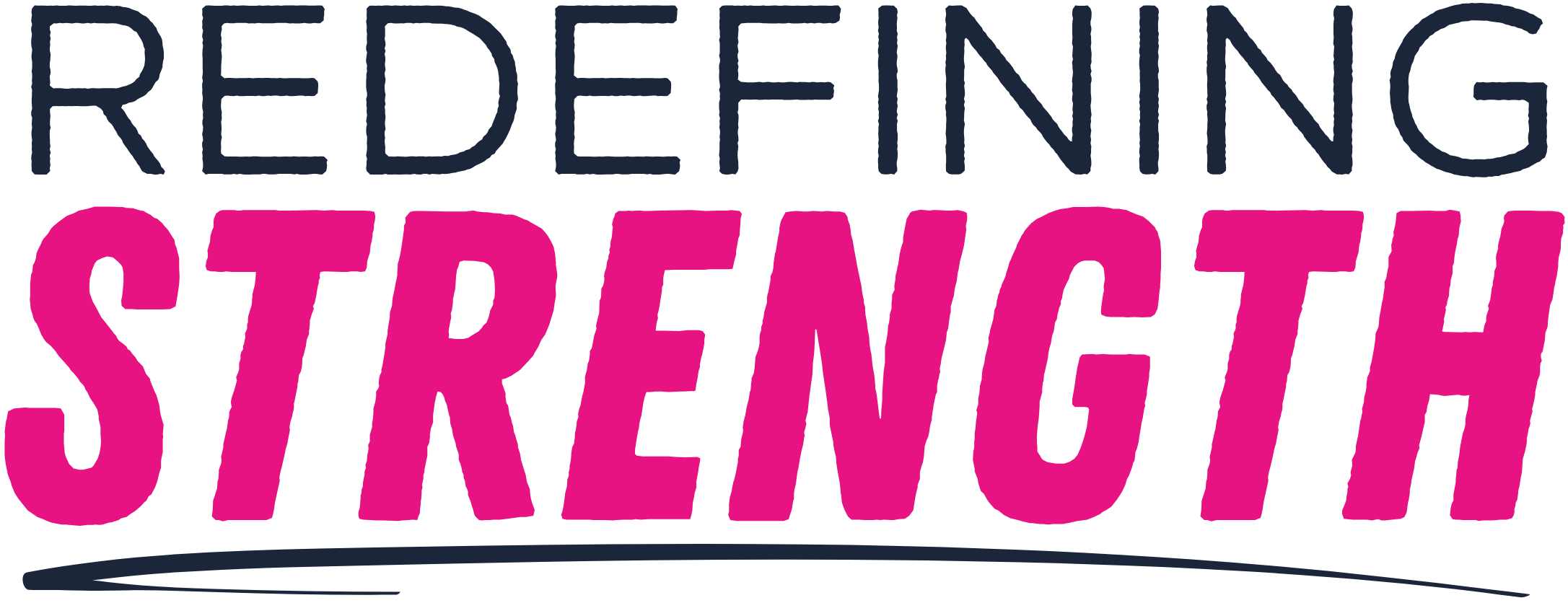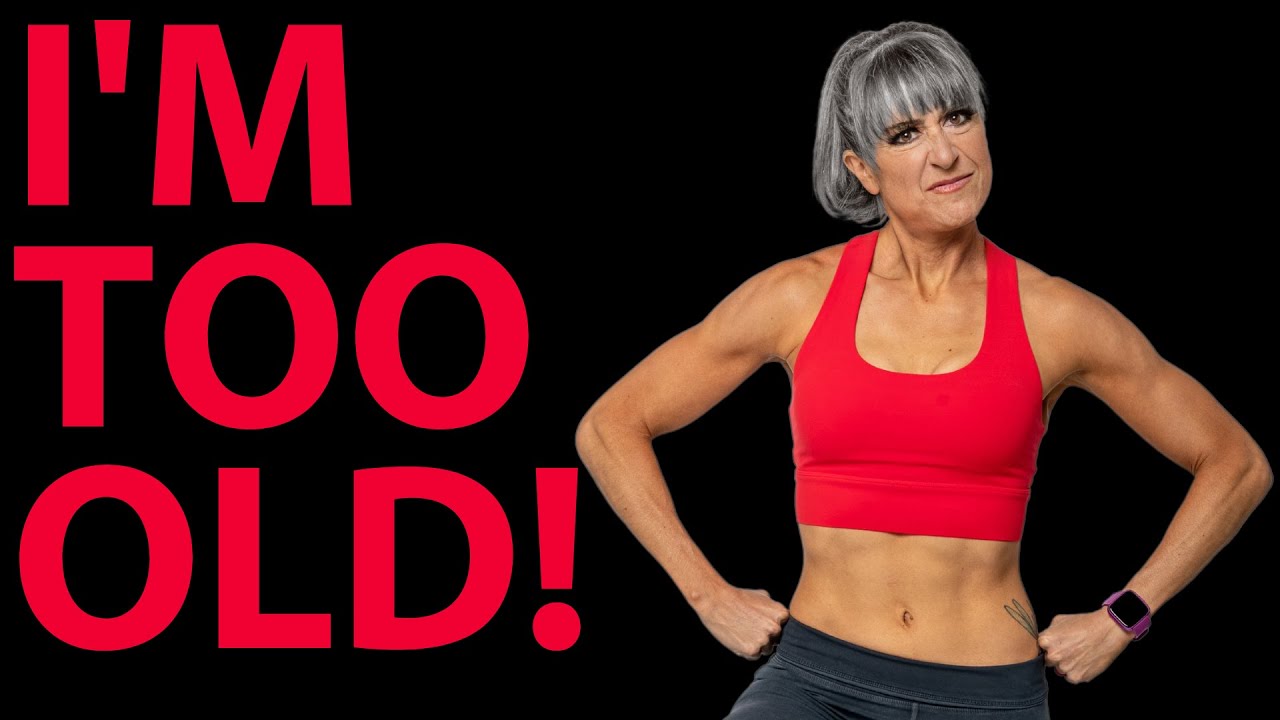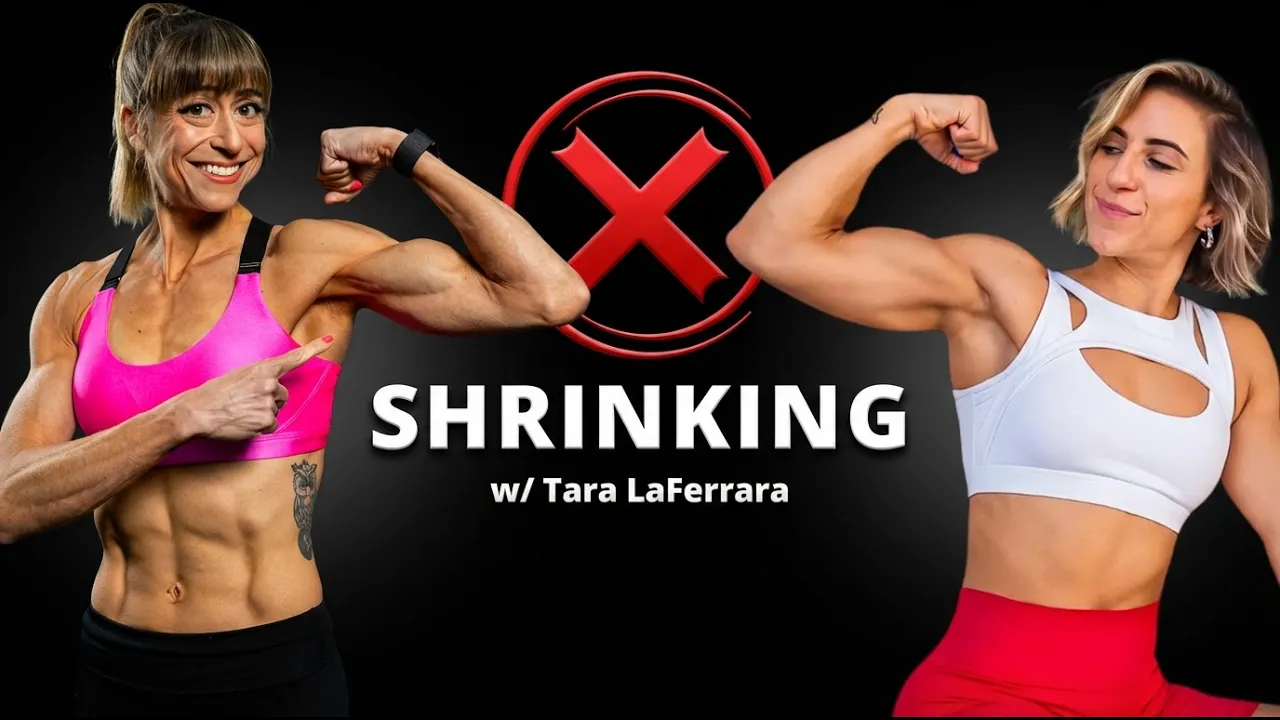“I’m too old to gain muscle.”
Stop lying to yourself. Stop giving yourself an excuse to not work hard and move forward.
Because while our body, needs and goals do change as we get older, and yes it 100% becomes harder to build and retain lean muscle, we can achieve fabulous results and build muscle at any and every age.
And honestly, often the reason we don’t see the results we want as we get older is because we cling to improper dieting and workout practices that we may have “gotten away with” when we were younger.
But at every stage of life, we need to be adjusting our training and fueling. Nothing works forever.
Our body and lifestyle are constantly evolving and so should our diet and training habits to meet us where we are at currently so we can always move forward and be functional strong till our final day on this planet!
That’s why I want to share 7 tips to help you not only maintain your muscle mass but gain muscle as you get older.
Tip #1: Use It Or Lose It.
So often the reason we see more dramatic shifts in body composition and lose more muscle mass as we get older is because we’ve STOPPED doing what makes us fitter and stronger.
We accept decline and use age as an excuse instead of finding ways to really challenge ourselves.
Things do get harder. We may feel more awkward with balance moves. We may feel like we recover slower.
We may even dislike coordination moves because they are uncomfortable.
Even mainstream media tells people to stop doing what once kept them strong.
But if you don’t use it, you lose it.
If you want to maintain your muscle, you’ve got to challenge your body.
If you want to keep your mind-body connection strong, which can lead to better muscle hypertrophy as well, you’ve got to do moves that challenge your coordination.
And if you not only want to gain muscle but stay functionally strong and avoid falls, you’ve got to do those awkward balance moves.
Use it or lose it. Keep challenging yourself and training those movement patterns in the gym so you move better in every day life!
Tip #2: Stop Dieting.
Muscle helps keep our metabolic rate higher. It helps us burn more calories at rest and stay leaner.
And we get older we become less able to utilize protein as efficiently making it even harder to build and retain lean muscle mass.
But this is why it is even more key we stop the dieting and extreme deficits.
While it can feel harder and harder to lose any weight we’ve gained so we feel we need to turn to larger and larger calorie deficits, this ultimately sabotages our results.
It leads to more muscle being lost in the process of us trying to lose weight which only leads to metabolic adaptations and worse body composition.
It leads to us actually making it harder on ourselves to lose the weight and keep it off. Plus the metabolic adaptations mean we burn fewer calories at rest.
This leads to us then slashing our calories lower and lower to try to keep losing, perpetuating the horrible weight gaining cycle as we get older.
Instead we need to FUEL that lean muscle.
We need to focus on macros first and a very slight calorie deficit so we can help ourselves retain that lean muscle even as we want to lose fat.
Or we maybe even need to first retrain our body to eat more so we can build lean muscle with a small calorie surplus before we consider a slight deficit to lose!
Tip #3: Do Moves That Challenge You.
Many of us have heard that strength training is key to gaining muscle especially as we get older.
And it is.
By challenging our muscles, we force them to rebuild and grow stronger.
It’s why we don’t want to fear lifting heavy as we get older.
The key is recognizing what lifting heavy is for us.
It may mean bodyweight training starting out, especially if you haven’t trained before or trained consistently in awhile.
Or it may be using resistance bands or dumbbells over barbells.
The key is not fearing loads and truly challenging yourself instead of going lighter just because you’ve hit a certain age.
Fitness is about ability PERIOD.
We always have to meet ourselves where we are at.
This also means we can’t avoid awkward and uncomfortable moves that challenge our mind-body connection.
Neuromuscular efficiency, or the ability to recruit muscles quickly and in the right sequences to perform movements properly, is key to us moving well and even improving our reaction times and coordination in every day life.
Not to mention that ability to recruit muscles quickly, that muscle activation, will also IMPROVE our muscle hypertrophy.
So if you want to be able to gain more muscle, you want to improve that mind-body connection with moves that challenge your balance and your coordination while also challenging yourself with loads!
Tip #4: Increase Protein Portions Per Meal.
As we get older we can develop anabolic resistance and we are less able to utilize protein as efficiently.
This means we actually need to increase our protein intake, especially when we’re training hard and lifting to build muscle.
Because our muscles don’t respond by increasing muscle protein synthesis in the same way as when we were younger, increasing a portion of 20 grams of protein to 30 may be super key.
And if we’re training harder, you may see an even better benefit from 40 grams, especially after a hard training session.
However, the reason I don’t just say increase protein intake overall is because, as we get older, we can also often see a decline in our appetite.
This decline can be purely age related but also based on how we’ve trained our body to fuel when trying to lose weight in a more extreme deficit, which can make it hard to eat a ton of protein in one sitting, especially because it is so satiating and can make us feel fuller.
By increasing each meal over trying to get in a ton extra at one meal, and even adding in a pre and post workout snack that is protein-centric, we can break up our protein intake to see results.
You may even find that you can see added benefits from a BCAA supplement consumed DURING your workout as Leucine especially is so critical to stimulate muscle protein synthesis.
There can also be some benefits of breaking up your protein to keep a positive protein balance at multiple times a day to promote better muscle growth!
Tip #5: Do Your Mobility Work.
We can see changes in our recovery and aches and pains can feel like they’re adding up as we get older.
Too often we simply blame our age over recognizing the movement compensations, imbalances, overuse and overload that have been occurring for years that we haven’t addressed.
But whatever the reason, we can’t ignore these issues if we want to be able to train hard consistently to see results.
It’s why mobility work is so key.
It can help us move better and recover faster, even helping us better manage chronic inflammatory conditions that could fight our muscle gains, so we can train consistently and challenge ourselves to build that lean muscle.
Without proper recovery, we end up training to a point of diminishing returns where we are just constantly beating our body down over allowing for proper recovery and growth.
When we rest, we rebuild!
Here is a full body mobility routine with the complete 3-step prehab process to address common aches and pains.
But it is key we do this mobility work in every warm up so we can train to build that lean muscle more efficiently!
You’ll be surprised by how much even just 5-10 minutes of mobility work a day helps you train harder without needing extra days off to recover!
Tip #6: Be Strategic In Your Meal Timing.
I say this as a person who personally loves intermittent fasting as a meal timing…
Fasting can backfire when gaining muscle is your goal – especially if you are a hardgainer.
And as we get older, we have to realize that fasting and fasted training may hinder us from gaining muscle, as in a fasted state, your muscle protein balance is negative.
Basically you break down more muscle than you build.
So we put ourselves at greater risk for losing muscle the more we put ourselves in this negative protein balance.
Not to mention, when you train fasted, you don’t necessarily have the readily available stored fuel you need to truly push through a hard session or rebuild from the damage you’ve created.
So consider including a pre-workout meal with protein to have amino acids readily available in your system and even a carb source for immediate fuel to allow you to push harder in your session without fatigue.
This meal will help create a positive protein balance even before your session.
Then post workout, consider consuming another 40grams even of protein.
Studies have found that resistance exercise combined with amino acid ingestion elicits the greatest anabolic response and may assist the “elderly” in producing a ‘youthful’ muscle protein synthetic response provided sufficient protein is ingested following exercise.
This post workout protein consumption can also even help you improve your recovery so you can include more hard training sessions over the week.
Tip #7: Stay Active On Days Off.
Recovery and rest days don’t have to be “do nothing days.”
And the more we can actually use these days to prep our body to move better during our training sessions, the better off we will be.
Include 5-10 minute mobility routines.
Go for a long walk.
Honestly, walking is one of the most underutilized tools we have to stay functionally stronger and improve our body composition even as we get older.
Walking can help us avoid unwanted fat gain, keep our aerobic base strong and even recover from previous training sessions without being catabolic to our muscle mass unlike more intense forms of steady state cardio.
Walking can also be a great way to destress and help our body, and mind, rest!
So as much as it can be hard to take a day off, your body needs it. Your muscles repair and rebuild when you give them time to recover.
But to stay active, don’t be afraid to include light movement and mobility work on those days off!
You may be surprised by how much even this light activity helps you sleep better!
SUMMARY:
We can, and should, focus on building muscle at any and every age.
We are NEVER too old to see results.
And our workout routine and diet should always be based on our needs and goals, meeting us where we are at. But our age, that simple number, should never determine what we can or can’t do.
We have to remember that if we want to stay strong, it really is a case of use it or lose it.
So use these 7 tips to help you feel lean, strong and fabulous till your final day on this planet!
And for even more motivation to never say you’re too old, check out the Fitness Hacks Podcasts I’ve linked to below.
FHP S2:E7 – Can You Gain Muscle As You Get Older? If So, How!?
FHP S2: E46 – I’m too OLD!
MORE STUDIES:
https://pubmed.ncbi.nlm.nih.gov/22313809/
https://www.ncbi.nlm.nih.gov/pmc/articles/PMC6582369/
https://www.tandfonline.com/doi/abs/10.1080/15438627.2020.1770251
https://journals.physiology.org/doi/full/10.1152/jappl.2000.88.2.386
https://journals.physiology.org/doi/full/10.1152/ajpendo.00488.2005




You are so inspirational! Love the content you share, good insights.
Does it motivate me to restart my weight training workouts?! Gosh I wish it did! I just can’t get back into it (yet again).
I do love a good walk with my dogs & even started some light jogging. I am postmenopausal, & definitely want to live a long & healthy life. f you lived close by, I would ask for a swift kick towards my home TRX and hand weights to get me back to basic weight training workouts, LOL. I really do not want to go back into the gym again, too much testosterone there. And it seems quicker if I would do the gym workouts at home. IF!
Take good care & stay healthy! Alli
Thank you! So starting with even 5 minutes is key! I also have a fabulous online coaching program and find it can be the accountability needed to get back in a groove…but I’m a pushy trainer! 😉 https://redefiningstrength.com/private-coaching/
My understanding was that only men needed more protein, not is this not so.
I have always found that I received more benefits from my workouts if I fueled my body after. Does this depend on ur age or just the individual.
Thank you for ur time
One size definitely doesn’t fit all, but women most definitely need protein too. Protein, as we get older especially, becomes more key because it becomes harder to build and retain lean muscle. A focus on protein can also pay off as we go through menopause!
Thank you for the inspiration! 💪
Glad it helps!
Hi I am 67 have always maintained a healthy body however last 12 mths non Stop tendons inflamed leg , ankle. Shoulder .rotar. I am not game to even lift a small weight particularly left shoulder . I am having Physio etc. I have lost alit of muscle & desperately need to firm up. My weight 53 kilos
Hi Jo! Staying consistent with that physio is key. Are you also tracking your food? That can not only help you fuel better to recover but also maintain your muscle while losing fat.
Hi Cori! Your advice is invaluable! But I’m a bit nervous here, afraid I’ll loose muscle I’ve gained in the last 2 years. Just finished L ankle rehab, began R rotator cuff rehab. I am not used to eating all this goof, I feel bloated. But I’m doing it, and will see if it’ll work. I feel as if all I do is eat. I would like to add BC AAs to my diet, but I don’t know if that’s the right thing to do.
Hi! I am 62 and have recently lost a few pounds which is ok but I want to stay strong and looking for some easy proteins that are best besides anything dairy( I do take a brown rice protein that agrees with me.
Thank-you!!
Focus on moving forward from where you at. It’s all you can do! And honestly, BCAAs could be helpful while your activity is reduced to maintain that anabolic environment but that even depends on your macros!
I highly recommend tracking your food in general to make tweaks to the proteins you eat already, even changing portion size, but here’s another post to help – https://redefiningstrength.com/a-quick-macro-cheat-sheet/
I’m 57 I like to do exercise
Awesome!
I’m 62 looking to restart my fitness
Hi Merlin! Here are some great tips if you’re just starting back – https://redefiningstrength.com/fhp-s2e19-starting-back-avoid-these-4-common-training-mistakes/
Hi Cori,
I need some guidance with diet. I have always trained off and on for years but now at 61 I am struggling. I’ve had some health issues. I had my breast implants removed in May and couldn’t work out for several mos. Wow did that cause a huge change in my body! Everything is sagging and I have loose skin with love handles that I never had. I am going Vegan due to my chronic illness (psoriatic arthritis). What can I do to make sure I get enough protein in? Any suggestions are helpful. Thanks.
Are you tracking your macros currently Pamela? Getting back to strength work? Because this is really a longer conversation than I can fully go through in a comment, I’d recommend you join my FB group here to just be able to have resources and more back and forth discussion! https://strongateveryage.com/fb-group?sl=blogcomment